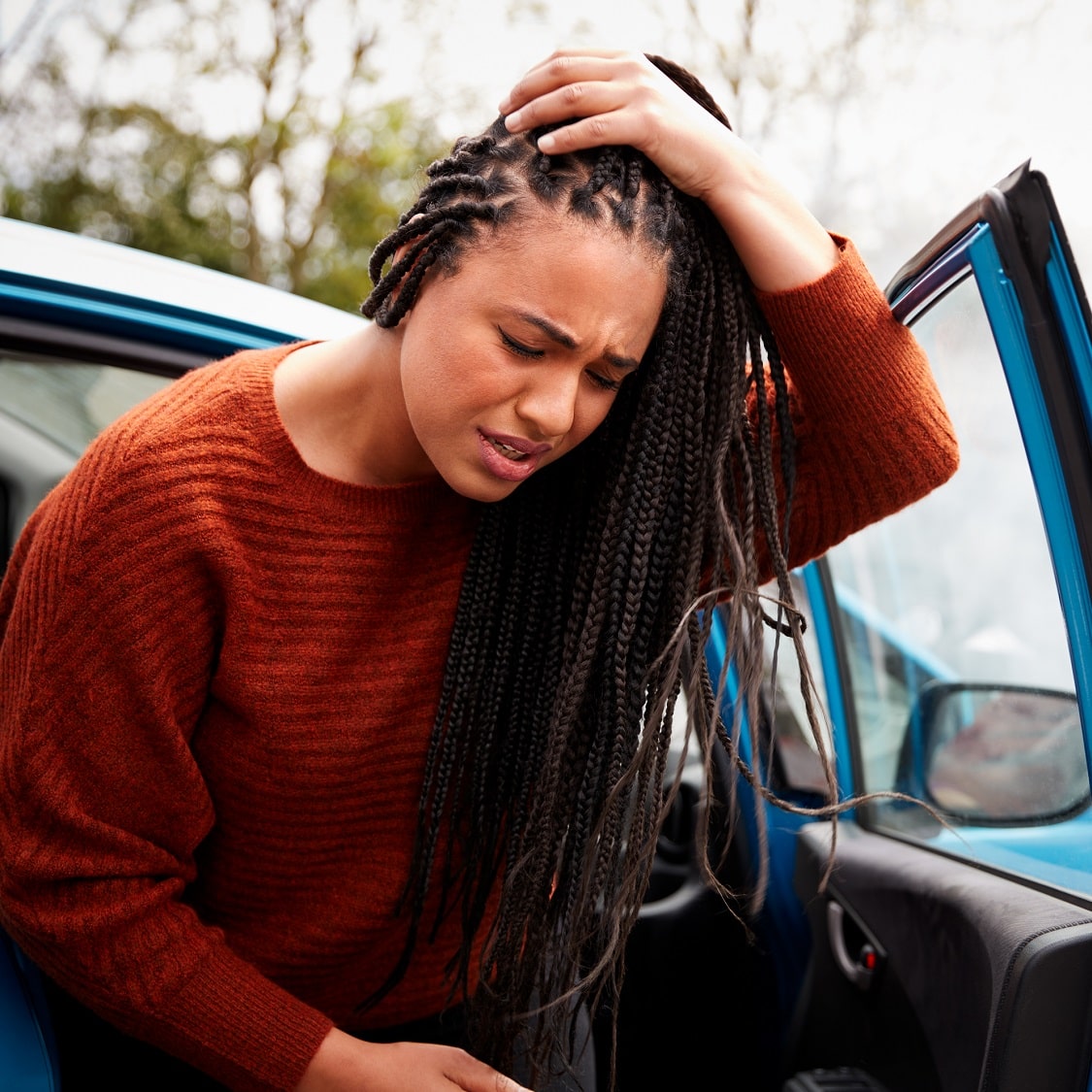Why Seizures May Happen After a Head Injury

June 02, 2022
Experiencing a moderate or severe head injury is serious and may result in the need for hospitalization and rehabilitation. But many people don’t realize that approximately 10 percent of people who are hospitalized after head trauma also end up experiencing a seizure related to their injury.
“Most people who experience a concussion don’t experience seizures,” says SuAnn Chen, M.D., medical director of Hackensack Meridian Johnson Rehabilitation Institute at Ocean University Medical Center. “Seizures are more likely to occur after head injuries that result in skull fractures, bleeding in the brain, or an object penetrating into brain tissue, or in patients who have infections or metabolic disorders, such as electrolyte imbalances.”
When do seizures typically occur after a head injury?
Seizures are caused by abnormal electrical signals in the brain and are most likely to occur within the first seven days of a moderate-to-severe traumatic brain injury (TBI). These seizures, called early post-traumatic seizures, can occur as the brain becomes inflamed and tries to heal.
“We typically have patients on an anti-epileptic medication for only the first seven days after their injury to prevent seizures,” says Dr. Chen.
Seizures that occur more than seven days after a TBI are called late post-traumatic seizures. Patients who have late post-traumatic seizures are at a higher risk of developing epilepsy, a condition characterized by repeated seizures.
“A patient who has an early post-traumatic seizure has about a 25 percent chance of continuing to have seizures, while a patient who has a late post-traumatic seizure has about an 80 percent chance,” says Dr. Chen.
The reason behind the higher risk of developing ongoing epilepsy after TBI is not completely understood, but is thought to be related to permanent changes in the brain’s electrical system resulting from injury.
What are the signs of seizures?
Many people are familiar with seizures that cause uncontrolled jerking or shaking movements and loss of consciousness, but seizures can also be much less obvious. In addition to uncontrollable body movements and loss of consciousness, seizures may cause:
- Sudden, extreme fatigue
- Dizziness
- Staring into space
- Lack of responsiveness to voice or touch
- Inability to speak
- Difficulty understanding speech
- Abnormal movements of the mouth and jaw, including lip smacking, chewing or jaw clenching
- Loss of bladder or bowel control
- Loss of memory
- Difficulty re-orienting to the environment after the seizure passes
“Seizures can look different for each patient, and it can be hard to diagnose the types of seizures that don’t cause violent symptoms,” says Dr. Chen.
What should I do if I am caring for someone who has a seizure?
If a loved one has a seizure after a head injury, it can be extremely frightening. It’s important to be well-prepared so you can monitor your loved one’s condition and take steps to help if a seizure occurs.
Seizure safety tips include:
- Dial 9-1-1 if:
- The seizure lasts longer than five minutes or the person has repeated seizures. Most seizures resolve within a few minutes, but seizures that last longer than five minutes or happen one after another can indicate a serious problem called status epilepticus that requires emergency treatment at a hospital.
- The person has difficulty breathing or waking after the seizure.
- The person has never had a seizure before.
- The person is injured during the seizure, or the seizure happens in water.
- The person has other health conditions, such as diabetes, heart disease, or is pregnant.
- Prevent fall-related injuries by easing the patient onto a bed, couch or the floor.
- Lay the patient on their side to keep their airway clear.
- Avoid putting anything in the patient’s mouth to prevent choking or being bitten.
- Do not allow someone who has had a seizure to drive, even if they appear to be OK afterward.
Any type of seizure should be immediately reported to a physician.
“Patients who have seizures after a head injury need to be seen by a brain injury specialist or a neurologist for a work-up, which often includes an EEG [electroencephalogram] test to look for abnormal electrical activity in the brain,” says Dr. Chen.
How are seizures treated after a head injury?
Most people who are diagnosed with epilepsy after a head injury respond well to medications. However, it is important to get an accurate diagnosis and ongoing care from a brain injury specialist, neurologist or epileptologist, which is a neurologist who has advanced training in epilepsy management.
“Seizures are well-controlled with medications in 70-80 percent of people who develop epilepsy after a head injury,” says Dr. Chen. “Only a very small percentage of people continue to have ongoing, uncontrolled seizures.”
Next Steps & Resources:
- Meet our Experts: SuAnn Chen, M.D.
- To make an appointment with Dr. Chen or a doctor near you, call 800-822-8905 or visit our website.
- Learn about brain injury rehabilitation and neurological care at Hackensack Meridian Health.
The material provided through HealthU is intended to be used as general information only and should not replace the advice of your physician. Always consult your physician for individual care.
Find a doctor near me
4 Steps to Recovery After a Brain Injury

Recover from a brain injury. Dr. Greiss offers 4 steps to recovery and support at JFK Johnson Rehabilitation Institute. Call 800-822-8905.
Head Trauma: Know When to Get Help

Head Trauma: Know when to seek help. Learn about symptoms, treatment, and when to get emergency care from leading doctors. Call 800-822-8905.
Find a doctor near me

Can Brain Injury Change Your Personality?
Brain injury may alter personality. Learn about common symptoms and available treatments from Dr. Alphonsa Thomas. Call 800-822-8905 for care.

Should You Let Your Child Sleep if You Suspect a Head Injury?
Head injuries can be frightening, especially in children, so it’s important to know what to do if and when they happen. Even if you think it’s just a bump on the head, pay attention to your child’s cues.

When Is It Safe to Return to Sports After a Concussion?
Whether you’re a professional or recreational athlete, it can be tough to watch from the sidelines while you heal after a concussion.

Ways to Test If You Have a Concussion
Concussion symptoms? Learn how to recognize and test for a concussion at home. JFK Johnson Rehabilitation Institute offers expert care. Call 800-822-8905.
